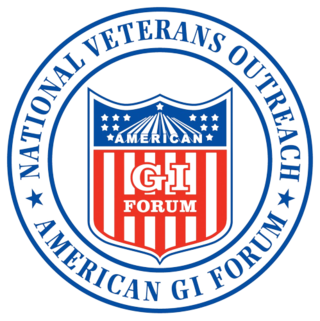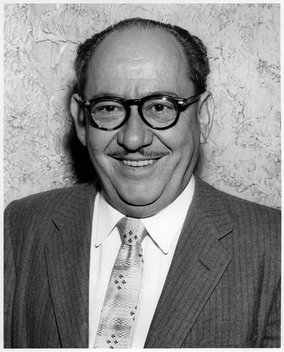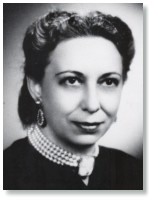
Tex-Mex cuisine is a regional American cuisine that originates from the culinary creations of Tejano people. It has spread from border states such as Texas and others in the Southwestern United States to the rest of the country. It is a subtype of Southwestern cuisine found in the American Southwest.

Ganado is a city in Jackson County, Texas, United States. The population was 1,975 at the 2020 census.

The Houston Independent School District (HISD) is the largest public school system in Texas, and the eighth-largest in the United States. Houston ISD serves as a community school district for most of the city of Houston and several nearby and insular municipalities in addition to some unincorporated areas. Like most districts in Texas, it is independent of the city of Houston and all other municipal and county jurisdictions. The district has its headquarters in the Hattie Mae White Educational Support Center in Houston.

Westbury is a neighborhood in the Brays Oaks district of Southwest Houston, Texas, United States. It is located east of Bob White Road, north of U.S. Highway 90 Alternate, and west of South Post Oak Road, adjacent to the Fondren Southwest and Meyerland neighborhoods, just west of the southwest corner of the 610 Loop.

Héctor Pérez García was a Mexican-American physician, surgeon, World War II veteran, civil rights advocate, and founder of the American GI Forum (AGIF). As a result of the national prominence he earned through his work on behalf of Hispanic Americans, he was instrumental in the appointment of Vicente T. Ximenes, a Mexican American and AGIF charter member, to the Equal Employment Opportunity Commission in 1966.

The American GI Forum (AGIF) is a congressionally chartered Hispanic veterans and civil rights organization founded in 1948. Its motto is "Education is Our Freedom and Freedom should be Everybody's Business". AGIF operates chapters throughout the United States, with a focus on veterans' issues, education, and civil rights. Its two largest national programs are the San Antonio-based Veterans Outreach Program, and the Dallas-based Service, Employment, Redevelopment-Jobs for Progress, Inc. (SER). The current National Commander is David Rodriguez.
Gustavo "Gus" C. Garcia was an American civil rights attorney. Garcia worked with fellow attorney Carlos Cadena in the landmark case Hernández v. Texas (1954), arguing before the US Supreme Court for the end of a practice of systematic exclusion of Hispanics from jury service in Jackson County, Texas. Even though Mexican Americans composed more than 10% of the county's population, no person of Mexican ancestry had served on a jury there and in 70 other Texas counties in over 25 years. The high court, led by Chief Justice Earl Warren, ruled that United States citizens could not be excluded from jury duty based on national origin, because such exclusion denied the accused a jury of his peers.

Magnolia Park is an area of the East End, Houston, Texas, located near the Houston Ship Channel. One of the oldest Hispanic neighborhoods in the City of Houston, Magnolia Park was formerly incorporated as the City of Magnolia Park in eastern Harris County.
The La Feria Independent School District (LFISD) comprises four elementary schools: Sam Houston, C.E. Vail, David G. Sanchez and Noemi Dominguez, one Middle School: W.B. Green Jr. High, and one High School: La Feria High School. LFISD is ranked as a 4A school district. Its mascot is the Lion, the school colors are maroon and gold, and the district's motto is Expect, Achieve, Excel.
Dual language is a form of education in which students are taught literacy and content in two languages. Most dual language programs in the United States teach in English and Spanish, but programs increasingly use a partner language other than Spanish, such as Arabic, Chinese, French, Hawaiian, Japanese, or Korean. Dual language programs use the partner language for at least half of the instructional day in the elementary years.

The League of United Latin American Citizens (LULAC) is the largest and oldest Hispanic and Latin-American civil rights organization in the United States. It was established on February 17, 1929, in Corpus Christi, Texas, largely by Hispanics returning from World War I who sought to end ethnic discrimination against Latinos in the United States. The goal of LULAC is to advance the economic condition, educational attainment, political influence, housing, health, and civil rights of Hispanic people in the United States. LULAC uses nationwide councils and group community organizations to achieve all these goals. LULAC has about 132,000 members in the United States.

George Isidore Sánchez (1906–1972) was a pioneer in American educational scholarship and civil rights activism, originally from the state of New Mexico. He served on the faculty of the University of New Mexico, held several concurrent teaching, chair, and dean positions at The University of Texas at Austin from 1940 until his death. Sanchez also acted as the 13th president of the League of United Latin American Citizens (LULAC), while spearheading several landmark civil right aimed court cases focusing on equal educational opportunities for Chicano Americans and opposing the use of racially-biased standardized tests based on non-proficiency in English.

Felix Tijerina (1905–1965) was a Mexican-American restaurateur, activist, and philanthropist in Houston, Texas. He served as the 25th president of the League of United Latin American Citizens.

Alicia Dickerson Montemayor was an American civil rights activist from Laredo, Texas, the first woman elected to a national office not specifically designated for a woman, having served as vice president general of the interest group, the League of United Latin American Citizens. She was the first woman to serve as associate editor of the LULAC newspaper and the first to write a charter to fund a LULAC youth group. Montemayor urged the inclusion of girls and women into Latin American activism and also promoted the interests of middle-class Mexican-Americans. She is a designated honoree of Women's History Month of the National Women's History Project.
The Mexican-American Educational Council (MAEC) was a post Chicano-movement non-profit organization in the Houston, Texas area. Its principal goal was to achieve equitable access to public education for Mexican Americans in Texas.

William H. Wharton K-8 Dual Language Academy, formerly William Wharton Elementary School, is a public school in the Neartown area of Houston, Texas and part of the Houston Independent School District. Also known as the Wharton Dual Language Academy, the school serves gifted and talented students in the Language Magnet program from Pre-K through 8th grade.
The following is a timeline of Latino civil rights in the United States.
Mexican American Odyssey: Felix Tijerina, Entrepreneur and Civic Leader, 1905-1965 is a 2001 book by Thomas H. Kreneck, published by Texas A&M University Press, discussing Houston restaurateur Felix Tijerina.
Adela Sloss-Vento was born Karnes City, Texas to Anselma Garza and David Henry Sloss. As a young American woman of Mexican descent, she was determined to become a writer, hailing from southern Texas, educated in San Juan, later lived in Corpus Christi during World War II, and then settled in Edinburg, she used her pen as weapon for more than sixty years, countering racial discrimination and exploitation of laborers, all the while championing the civil rights of Mexican Americans through the written word.

Alonso S. Perales was an American lawyer, diplomat, and civil rights activist based in Texas. He was a founder of the League of United Latin American Citizens (LULAC) and served as the second president, helping write its constitution. Perales also served as a diplomat in the Eisenhower administration.












